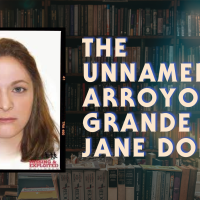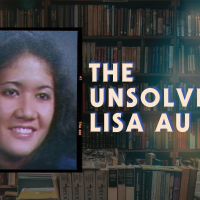This month’s unsolved murder post is one of the more culturally significant ones we’ve examined. Of course, all people matter and all victims deserve to have their stories told, but today we will be delving into the unsolved murder of a civil rights icon named Alberta Odell Jones. How did Alberta Jones end up in the Ohio River in August of 1965? Let’s Explore.
Who Was Alberta?
Alberta Odell Jones was born on November 12, 1930. She graduated from Louisville Central High School and the Louisville Municipal College for Negroes (keep in mind that this is the 50’s – the college eventually merged with the University of Louisville). Alberta was third in her class at LMC. She continued her education for a year at Louisville Law School before transferring to Howard University School of Law, where she graduated fourth in her class. She was one of the first Black women to pass the Bar in Kentucky. Her most notable client was Muhammed Ali – who she introduced to Archie Moore.
In February of 1965, Alberta was appointed as a prosecutor to the Louisville Domestic Relations Court. The field of Domestic Relations is essentially family law. They rule over issues between spouses, parents and children, and other familial relations. That means Alberta would have seen cases involving custody, marriage and divorce, alimony and support, visitation, etc. All of which are incredibly charged subjects. But I’m getting ahead of myself.
Alberta was a huge player in the civil rights movement in Kentucky. She took part in several marches in Louisville, as well as the March on Washington. She created an association called the Independent Voter’s Association and was a member of both the NAACP and the Louisville chapter of the Urban League. Jones was especially passionate about voting rights, going so far as to rent voting machines and teach classes on how to vote.

via the Washington Post)
The Murder
On August 5th, 1965, Alberta’s body was found in the Ohio River. She was 34 at the time. Her cause of death was originally ruled to be a drowning – though whether police believed it to be accidental or a suicide is either unknown or was never established. The track of the investigation changed quickly, however, when Alberta’s car was discovered on the Sherman Minton Bridge. The car had traces of blood in it, making it clear that someone else – possibly more than one someone – was responsible for Alberta’s drowning.
The Investigation
With evidence of a struggle discovered, a murder investigation was opened. An autopsy showed that Alberta had received blunt force trauma to the head prior to entering the river. The weapon was thought to have been a brick. Once she was beaten unconscious, she was thrown into the river where she subsequently drowned. Investigators found witnesses who claimed to have seen three men tossing a body into the river. It is unclear why they did not immediately come forward with this information, but it’s impossible to speculate on their reasons.
Alberta’s mother added another interesting piece to the investigation when she was questioned about that night. Apparently Alberta had gotten a call from a client named Gladys Wyckoff, who wanted to meet to discuss her case – meaning that the meeting was fairly short notice and was not on any sort of schedule. Another strange development in the case came in 1968, when Alberta’s purse was found on the same bridge she was thrown from.

via Wikipedia)
This was seemingly the last contemporary clue in the case. Little information is available on any investigative efforts after it was found – it’s possible and perhaps even likely that investigative resources were simply reallocated fairly quickly. In 2008, a fingerprint that was found in Alberta’s car was matched to a man who was 17 at the time of the murder. He was brought in for questioning and underwent a polygraph test, which he failed. Despite this, the prosecutor declined to pursue the case against him in 2010. From here, the case was functionally closed until 2017, when the Emmett Till Unsolved Civil Rights Crime Act provided the necessary funds for it to be reopened. Which is fantastic – except for the fact that, somehow, all of the evidence for the case has gone missing. The case is still active according to the Louisville Police Homicide Unit, but the fingerprints, vacuum samples and cigarette butts from the car, and Alberta’s clothes are gone.
Theories
From what I can see, there are two main theories here. First, it’s possible that Alberta was the victim of a violent hate crime. She was a passionate and outspoken Black woman in the Civil Rights Era. She was the first Black woman to be appointed prosecutor of the Louisville Domestic Relations Court. It is reasonable to believe that this would piss some racists off. If the wrong person had seen her headed to her from the impromptu meeting with her client that day, they may have decided to act on their bigotry.
The second theory is that someone was seeking revenge for a case Alberta worked. As stated earlier, her area of law dealt with highly contentious and charged cases. A disgruntled defendant whose case did not go their way may have sought to mete out their own justice by murdering Alberta. Of course, race could absolutely tie into this theory as well – for instance, a racist defendant lost their case and blamed Alberta for it, allowing their bigotry to fuel their violent actions.
I tend to lean towards race playing a big part in the motive here, for a few reasons. First, because we know that robbery was not a motive – the purse was held for years with its contents being untouched. The purse is also a huge red flag for me – leaving it at the site of the attack years later seems like a taunt to me. We also have to consider the sociopolitical climate of the time. Alberta was a trailblazer, and I’m sure there were more than a few people that were displeased by her success.
Investigating Agencies
So, the thing with cases like this is that the suspects are likely dead by this point. I believe it is the responsible thing to do to find the truth of what happened. To hold those responsible accountable, if only in memory. The opportunity for justice during their lifetimes may have passed, but that doesn’t mean the responsible party should be let off the hook. So, if you or anyone you know have any information about the murder of Alberta Jones, please contact the Louisville PD.
Sources
- ta-jones/417-549730769
- https://www.nytimes.com/2017/09/19/us/alberta-jones-murder-louisville.html
- https://www.blackpast.org/african-american-history/alberta-odell-jones-1930-1965/
- https://www.washingtonpost.com/news/retropolis/wp/2017/10/09/who-killed-alberta-jones-louisvilles-first-black-woman-prosecutor/
- https://www.newsweek.com/alberta-jones-murder-louisville-black-female-prosecutor-1534062
- https://www.law.cornell.edu/wex/domestic_relations#:~:text=Domestic%20relations%20refers%20to%20the,within%20a%20family%20or%20household.&text=These%20courts%20cover%20a%20breadth,%2C%20child%20custody%2C%20child%20support.
- https://www.pbs.org/wgbh/frontline/interactive/unresolved/cases/alberta-o-jones
- https://blackthen.com/unsolved-murder-alberta-jones-first-black-woman-prosecutor-louisville-kentucky/
- https://kcaah.org/women-in-history/alberta-jones/
- https://medium.com/i-taught-the-law/another-black-woman-murdered-in-louisville-d06e2dcf4cd9
- https://www.bellarmine.edu/news/archives/2018/05/08/remington-alberta-jones-whas-series/
- https://www.courier-journal.com/story/news/local/2016/08/03/researcher-reopen-prosecutors-1965-murder/87956772/
- https://nkaa.uky.edu/nkaa/items/show/1454
- https://www.newspapers.com/clip/28349572/the-murder-of-alberta-jones-first/
- https://www.newspapers.com/clip/19782177/the-courier-journal/
- https://www.newspapers.com/clip/19781170/the-courier-journal/
- https://www.newspapers.com/clip/43958966/decora-white-murdered-in-mid-60s/
- https://www.newspapers.com/newspage/462971283/
- https://www.newspapers.com/clip/19496615/courier-journal-14-sept-65/









